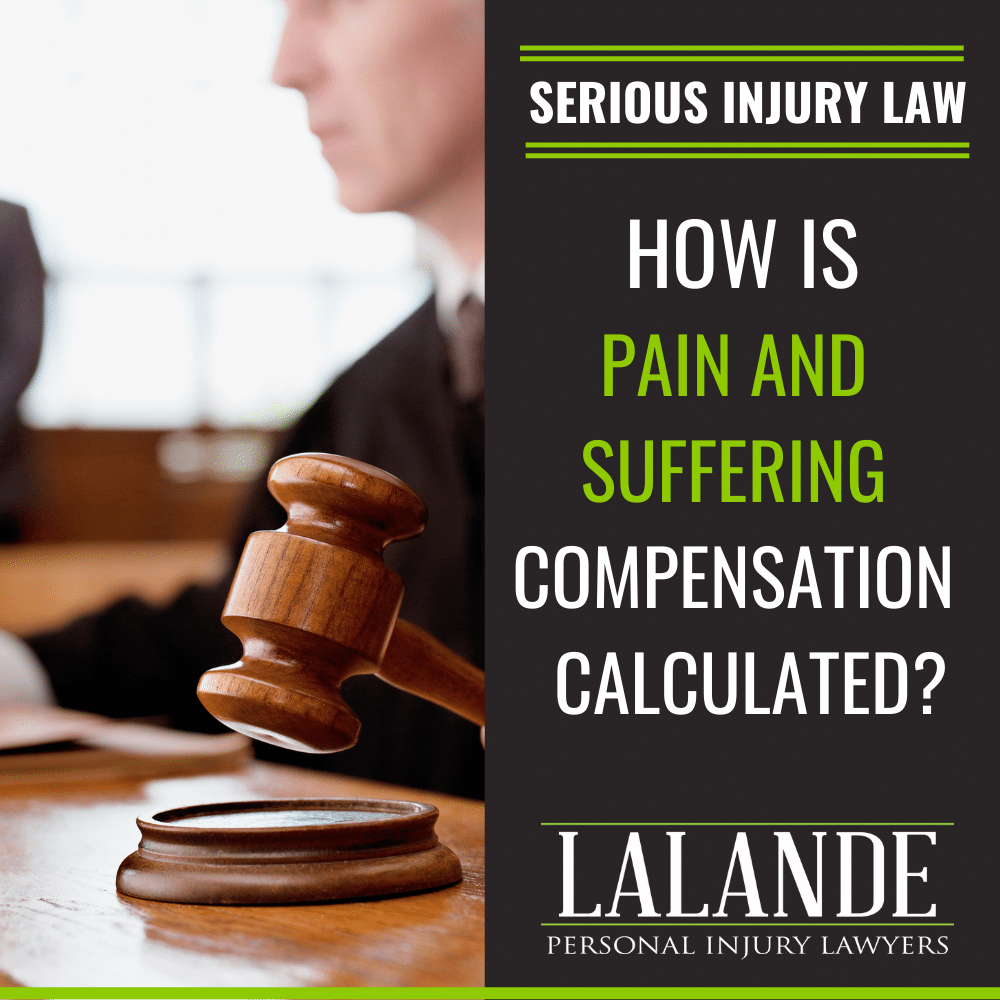
Personal injury law allows those who have suffered harm to seek compensation for any losses sustained, such as medical expenses or wages lost through workplace injuries.
Personal injury law dates back to the late 1800s; however, its prominence as an industry didn’t become fully realized until the 1970s when lawyers started advertising their services.
It’s been around for centuries
Personal injury law provides protection to people injured due to another’s negligence, typically filed in civil courts rather than criminal courts where governments prosecute wrongdoers.
There are a range of personal injury claims eligible for compensation, such as car collisions, wrongful deaths, rape and medical malpractice; however, most personal injury lawsuits settle out-of-court before trial is ever necessary.
Personal injury law dates back to ancient times. King Hammurabi of Babylon wrote the Code of Hammurabi around 1750 BC which contained 282 laws for citizens.
While this case was established at an early stage, it still established many key principles of personal injury law, including proximate cause and strict liability – two concepts still used frequently today when filing personal injury cases.
In the late 18th century, workers often endured unsafe work environments with minimal oversight and long hours. This often resulted in serious injuries that impaired quality-of-life for many Americans.
At that time, most personal injury lawyers weren’t particularly successful – their success depended heavily on how much they charged and their ability to negotiate settlements.
As the Industrial Revolution advanced, more workers were injured due to hazardous working environments, prompting lawsuits against companies for negligent acts.
Though these cases were successful, many found the system cumbersome and unfair; this prompted one law firm to intervene and take measures.
Jacoby & Meyers law firm wanted to increase access to their services among a wider market, so they began advertising through newspapers, billboards and bus signs.
At the time, this form of advertising violated ethics laws; nevertheless, it proved successful. By the 1970s, personal injury law had become widely practiced across America.
Liebeck vs. McDonald’s Restaurants was perhaps the most notable personal injury lawsuit of the 1970s, which awarded a record $2.9 million settlement to a woman who suffered third-degree burns after spilling coffee on herself while sitting. Women often pursued compensation when their breast implants ruptured or leaked during this era as well.
It’s a form of tort law
Tort Law is a field of civil litigation which encompasses any acts that cause wrongdoing to another. It follows from the principle that anyone responsible should be held liable. This may involve negligence or intentional harm as causes.
Negligence is one of the most widely practiced forms of tort liability. In personal injury cases such as car accidents and slip-and-falls, negligent parties often fall under this classification of tort liability for harm caused; their actions would have been expected of any reasonable person.
Tort law can even serve as a form of criminal law; for example, when someone runs a red light and causes injury to another driver, they could face criminal prosecution under reckless driving statutes.
However, another form of tort exists which doesn’t involve criminal actions but still places someone under responsibility: strict liability. This form applies when companies or individuals produce defective products without being able to fix them; in such instances they’re held liable for any harm caused by their product.
Dependent upon their jurisdiction, victims may be eligible to recover monetary damages to compensate them for losses such as medical expenses, lost income and property damage as well as pain and suffering. They could also recover punitive damages to punish the tortfeasor and prevent them from repeating such harmful behavior in future actions.
Victims may also seek compensation for non-economic damages, including emotional trauma, loss of enjoyment of life and companionship losses. While such non-monetary compensation may not be easily quantifiable, they still provide significant amounts of relief to victims.
An effective tort claim requires that the plaintiff establish that their tortfeasor owed them a duty, breached it, resulting in physical or mental injury to them, as well as losses sustained as a result of this violation. Hiring legal advice when filing is crucial if this type of claim is going forward.
It’s a civil law
In the United States, legal services encompass two distinct branches: civil law and criminal law. Criminal law covers offenses committed against the state or society while civil law addresses disputes among people, companies or organizations.
Cases can be brought by either private parties or the government. While both systems share similarities, there may also be distinct distinctions.
Criminal laws tend to focus on punishing those who break the law with jail time; civil laws on the other hand seek to remedy problems and make things better, hence you will see civil suits such as personal injury lawsuits which seek compensation for victims injured or lost due to someone else’s actions or inactions.
To win their personal injury case, the plaintiff must establish that their defendant breached their duty of care, leading to their injuries. This legal term known as negligence refers to when someone fails to act with reasonableness in upholding their responsibilities as set out by their duty of care obligations.
Courts must also determine that the breach of duty was the direct cause of your injuries, making this part of your case even more complex as you attempt to prove someone else’s actions caused your pain and injuries.
As soon as an accident or injury has taken place, it’s crucial that your case be filed and documented immediately. Otherwise, any chance to collect damages may be forever lost – which is why consulting an experienced attorney early after such events occurs is so vital if protecting your rights and increasing chances for a successful claim is to your benefit.
It’s a business law
Personal injury law may not be everyone’s cup of tea, but it can still pay dividends with some careful planning and execution. Sometimes this requires drawing upon the strengths of both business and people in order to reach an outcome which benefits all. Benefits of this business model include decreased expenses, increased productivity, enhanced morale and greater bottom line results. Furthermore, it helps enhance quality of life for victims, their family members and communities. Most often, tragic events include workplace injuries, car and truck accidents, property damage and wrongful deaths. Luckily, the laws of our land make it easier for individuals and organizations to receive compensation in such instances; whether someone you love was injured at work, on the road or within their own home – financial compensation will help pay medical expenses and related expenses.



